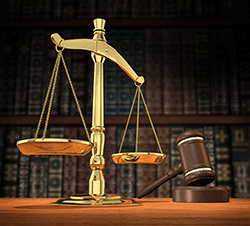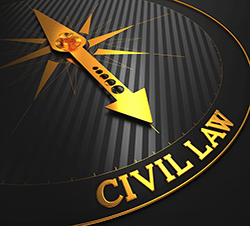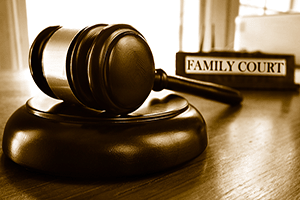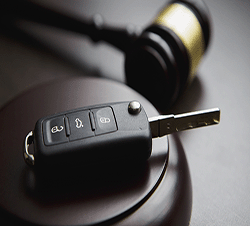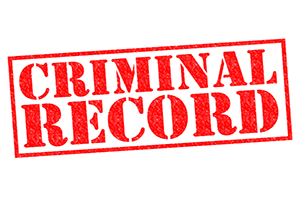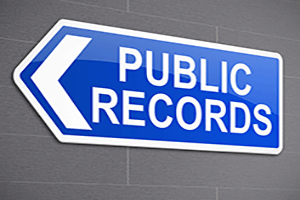When you need to access court records in Collin County, Texas, the first step is to understand the different courts and their specific functions. Whether you're seeking information for personal reasons, legal matters, or general interest, knowing how to navigate the county's court system can save you time and effort. Accessing court case records can be a relatively simple online task with the right guidance. In the following sections we'll cover the various judicial divisions, the process of running a Collin County court case lookup, and any privacy restrictions you should be aware of.
Overview of Collin County Judicial System
Collin County, a Texas community with well over one million citizens, is home to a variety of courts, each serving specific purposes in the county's judicial system. Understanding these courts and their functions is important for anyone looking to access court records. Each court in the county is designed to handle specific types of cases which will let you know where to begin your research. By familiarizing yourself with these courts, you can better determine where to find the records you need and how to access them online.
Collin County District Courts
The District Courts, divided by geographical area, have general jurisdiction, meaning they can hear almost any type of case, including civil and criminal cases. This general jurisdiction allows the various District Courts to manage complex legal issues including large civil cases and capital felony cases. The District Courts in this county are primarily responsible for:
1). Felony Criminal Cases, which can involve serious offenses that require comprehensive legal proceedings, that can include capital crimes or violent felonies such as aggravated assault.
2). Civil Cases with very large amounts of money at stake, where significant financial interests are involved.
3). Family Law Matters, such as divorce and child custody, which can have lasting impacts on the lives of those involved.
4). Juvenile Cases, where the primary focus is on rehabilitation and focused guidance rather than punishment or jail time.
Collin County Courts at Law
County Courts at Law in Collin County is a middle judicial division where the majority of cases falling between the jurisdiction of Justice Courts and District Courts. The County Courts often deal with:
1). Misdemeanor Criminal Cases, which are less severe than felonies but still require legal intervention which can often result in fines, restitution and potential jail time.
2). Civil Cases involving smaller sums of money, providing a forum for resolving disputes without the complexity of higher courts. These cases are often resolved in a few sessions.
3). Probate Matters, such as wills and estates, ensuring that individuals' final wishes are honored and legal issues are addressed.
4). Appeals from Justice Courts, offering a second chance for cases to be reviewed and potentially revised.
Collin County Justice Courts
Justice Courts, also known as Justice of the Peace Courts, handles mostly minor legal matters. These courts typically see cases like:
1). Traffic Violations and other Class C misdemeanors, providing a quick resolution to everyday legal issues.
2). Small Claims Cases, where individuals can seek justice without the need for extensive legal representation.
3). Evictions, ensuring that property disputes are resolved fairly and in accordance with the law.
4). Magistrate Duties, which involve preliminary judicial proceedings and administrative tasks.
Collin County Probate Court
The Probate Court in Collin County focuses on issues related to wills, estates, and guardianships. This court gives guidance on the assets of deceased individuals and how they are distributed according to their wishes and state law. The Probate Court also handles matters involving the guardianship of minors and incapacitated adults. This division has an important role in protecting the rights and welfare of those who cannot advocate for themselves, providing legal oversight and guidance.
Collin County Municipal Courts
Municipal Courts are specific judicial division that handle local violations that are limited to the cities within the county. These courts handle cases involving:
1). Violations of City Ordinances, ensuring that local laws are upheld and community standards are maintained.
2). Traffic Tickets, providing a streamlined process for individuals to address minor infractions.
3). Class C Misdemeanors that occur within city limits, offering a local venue for addressing low-level offenses.
How to Run a Collin County Court Case Lookup
Accessing public court records in Collin County is a simple process if you know where to look and what platform to use. Understanding the steps involved can make the process more efficient and less frustrating. Here's a step-by-step guide to help you run a criminal case search effectively.
Step 1: Determine the Right Court: Before you start your search, it's very important to identify which court handled the specific case. Understanding the type of case will lead you to the correct court. This step is necessary because each court has specific records and jurisdictional boundaries. For instance:
1). Felony Criminal Cases, start with the District Courts, as they handle the most serious offenses.
2). Misdemeanor or Smaller Civil Matters, check the County Courts at Law or Justice Courts, which deal with less severe issues.
3). Probate-Related Inquiries, head to the Probate Court, which specializes in wills and estates.
Step 2: Use Online Resources: Collin County offers online resources to help you access court records. The official website of the Collin County District Clerk is a valuable tool for searching court records. Online databases can provide quick access to the information you need without the hassle of visiting the courthouse in person. Visit their website and look for the court records search feature.
Step 3: Enter Relevant Information: Once you have access to the online search tool, enter the necessary information to locate the case records. Being thorough and accurate with the details you provide can significantly improve your chances of finding the correct records. This might include:
1). The full name of a party involved in the case, ensuring that you have the correct spelling and any aliases.
2). The case number, if known, which can expedite the search process.
3). The type of case (civil, criminal, probate, etc.), guiding you to the appropriate court records.
Step 4: Visit the Courthouse: If you cannot find the records online, you may need to visit the courthouse in person. Sometimes, older or more sensitive records may not be available online. Be sure to know which court to visit based on the type of case. Once there, you can request assistance from the court clerk to help locate the records you need. Courthouse visits can also offer the opportunity to ask questions and gain clarity on the records.
Step 5: Request Copies: If you need copies of the records, inquire about the process and any associated fees. Official copies may be required for legal proceedings or personal records. The court clerk can provide guidance on how to obtain official copies of the documents you're seeking. Understanding the fee structure and process can help you prepare for any costs involved.
Important Considerations
Privacy Laws: Keep in mind that some records may be restricted due to privacy laws. Certain cases, especially those involving juveniles or sensitive matters, may not be publicly accessible. Understanding these limitations can help set realistic expectations for what records you can obtain.
Fees: There might be fees associated with obtaining copies of court records. It's a good idea to check the costs involved before making a request. Being informed about potential expenses can prevent surprises and allow you to budget accordingly.
Accuracy: Ensure that you have accurate information when conducting your search. Misspelled names or incorrect case numbers can lead to unsuccessful searches. Double-checking your information can save time and improve the likelihood of finding the records you need.



